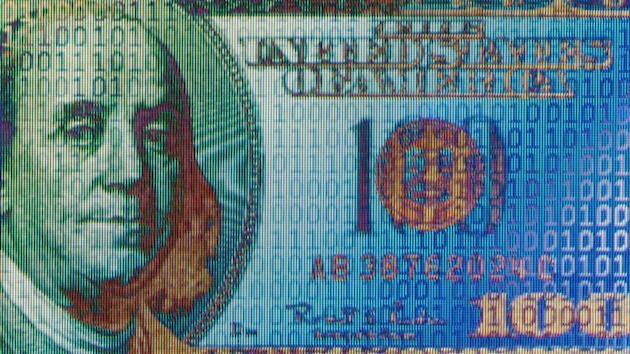Why you should be concerned by Biden’s digital currency plan

President Joe Biden signed an order on March 9, directing the Treasury Department, Office of the Attorney General and Federal Reserve to work together to produce a “legislative proposal” to create a digital currency within 210 days, about seven months, according to The Hill. That would be the beginning of October.

Critics believe the currency, which would be managed by the Federal Reserve and tethered to the value of the dollar, would create opportunities for government surveillance and control of private citizens. Those concerns are not assuaged by statements from the Federal Reserve about government control. Even the liberal Washington Post has doubts, reporting that it would enable the government to spy on every American.
But why should Americans be concerned? After all, the government would never use the currency to control the purchasing ability of everyday shoppers. Would they?
The Federal Reserve could not give a definitive “no.” In 2021, David Andolfatto, a senior vice president and economist in the St. Louis Fed’s Research Division, was asked whether the Federal Reserve would assure the public that digital currencies under control of the government “won’t ever be used to tell us when, how or where our money can be spent.”
In life one can’t give absolute assurances of anything
“In life one can’t give absolute assurances of anything,” Andolfatto replied when pressed.
Now, state governments are moving to protect their citizens against possible government overreach.
Florida Gov. Ron DeSantis is challenging the proposal to implement the central bank digital currency.
DeSantis and others have proposed legislation that would ban the recognition of central bank digital currencies, whether from the federal government or an overseas central bank, as money under Florida’s Uniform Commercial Code.
“The Biden administration’s efforts to inject a centralized bank digital currency is about surveillance and control,” he said, according to “The Daily Wire.” “Today’s announcement will protect Florida consumers and businesses from the reckless adoption of a ‘centralized digital dollar,’ which will stifle innovation and promote government-sanctioned surveillance. Florida will not side with economic central planners; we will not adopt policies that threaten personal economic freedom and security.”
The Federal Reserve has been exploring the move for some time, according to CNN: “The Federal Reserve Bank of Boston and the Massachusetts Institute of Technology published joint research last month on a CBDC experiment dubbed ‘Project Hamilton.’ The work used blockchain technology and ‘produced one code base capable of handling 1.7 million transactions per second,’ per a statement from the Boston Fed. This was far above the benchmark of 100,000 transactions per second the researchers initially sought out to achieve.
Nations such as China, Australia, Japan, India, Russia and South Korea are exploring central bank digital currencies, which have already been established in the Bahamas, Nigeria, and Jamaica, according to a report from the Atlantic Council. Skeptics of central bank digital currencies have noted the many instances in which the financial system has been leveraged by public and private actors to oppose certain political perspectives, including those often held by conservatives.
Gov. Kristi Noem, R-S.D. recently vetoed legislation that would have classified a potential central bank digital currency as money in South Dakota’s Uniform Commercial Code. DeSantis called on other states to adopt similar prohibitions on the digital assets.
could track each and every transaction that happens in the world
“A central bank digital currency is the cornerstone of a federal government that could track each and every transaction that happens in the world,” said Jimmy Patronis, Florida’s chief financial officer. “There would be no privacy, and if there is no privacy, there are no rights. In the same way Florida is fighting back against the IRS, we need to fight back against this program. It’s how we protect freedom, liberty and prosperity.”
For many, the move to a digital currency, which could easily be tied to a world currency, is a slow slide to the loss of American autonomy. While it’s not getting a lot of news coverage, it may be the most significant issue you must be aware of this year.
–Dwight Widaman | MV







